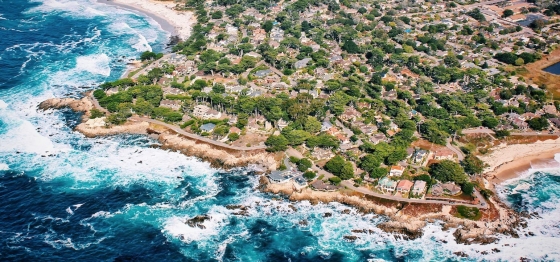Boston (MA) Weather and Climate: A Comprehensive Guide
Since Boston is bordered by Boston Harbor and the Atlantic Ocean, its coastal climate tends to be more moderate than inland locations. That´s why Boston rarely experiences either extreme heat or cold. In the winter, the first freezing temperatures usually occur in early November, but the temperatures are modified considerably by the nearness of the relatively warm ocean. Cold weather usually fades out by early April, and Boston typically enjoys a spectacular, colorful spring with moderate temperatures. Although it can get quite warm in the summer, the hot afternoons frequently are tempered by the eastern sea breezes, as air flows inland from the cooler surfaces of the ocean.
Boston has no true dry season as it rains intermittently throughout the year. Much of the rainfall during the summer and early fall comes from showers and thunderstorms. The main snow season occurs from December through March.
Average maximum day and minimum night temperature
In Boston, temperatures differ significantly between summer and winter months. On average, daytime temperatures range from a comfortable 29°C in July to a chilly 3°C in February.
Nighttime temperatures can drop, with average lows reaching -6°C in February. Check out our detailed temperature page for more information.Temperature ranges by month
Precipitation and rainy days
Boston experiences significant rain/snowfall throughout the year, averaging 1238 mm of precipitation annually. The amount of precipitation varies moderately throughout the year. The wettest month, December, sees around 132 mm of snow/rainfall, perfect for those who enjoy a bit of snow/rain now and then. The driest month, September, still receives a respectable 79 mm of rainfall.The mean monthly precipitation over the year, including rain, hail and snow
Sunshine over the year
In Boston, summer days are longer and more sunny, with daily sunshine hours peaking at 10.0 hours in May. As the darker season arrives, the brightness of the sun becomes less. December sees a soft sun for only 4.7 hours per average day. Visit our detailed sunshine hours page for more information.Monthly hours of sunshine
Daily hours of sunshine
Average water temperature
The mean water temperature over the year ranges from 4°C in February to 20°C in August.
Water temperature over the year
Average humidity
The relative humidity is high throughout the year in Boston.
The city experiences its highest humidity in August, reaching 72%. In February, the humidity drops to its lowest level at 62%. What does this mean? Read our detailed page on humidity levels for further details.
Relative humidity over the year
Average wind speed
The mean wind speed over the year ranges from 5 m/s in June, July, August and September to 7 m/s in January, February, March and December.
The mean monthly wind speed over the year (meters per second)
broken clouds and no rain broken clouds and no rain broken clouds and no rainForecast for Boston (MA)
Select a Month of Interest
Check the weather conditions for any month in Boston.
The best time of year to visit Boston in the United States of America
During the months of June and September you are most likely to experience good weather with pleasant average temperatures that fall between 20°C and 26°C.Other facts from our historical weather data:
July has an average maximum temperature of 29°C and is the warmest month of the year.
The coldest month is February with an average maximum temperature of 3°C.
December tops the wettest month list with 132 mm of rainfall.
September is the driest month with 79 mm of precipitation.
May is the sunniest month with an average of 301 hours of sunshine.
No idea where to travel to this year? We have a tool that recommends destinations based on your ideal conditions. Find out where to go with our weather planner.




